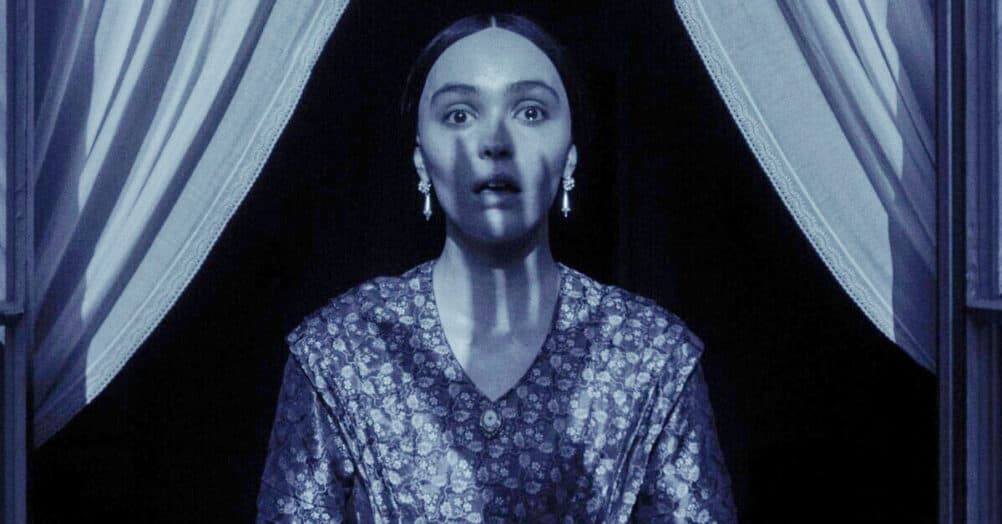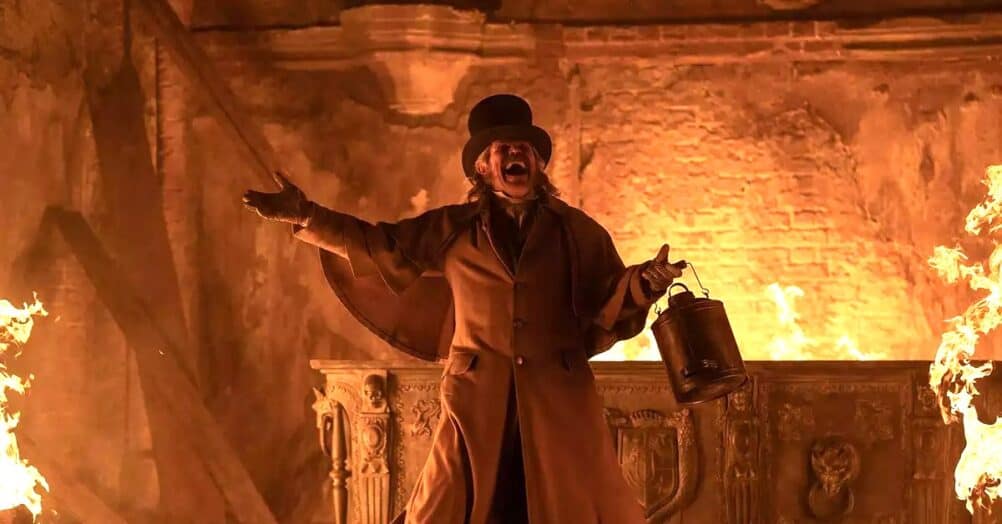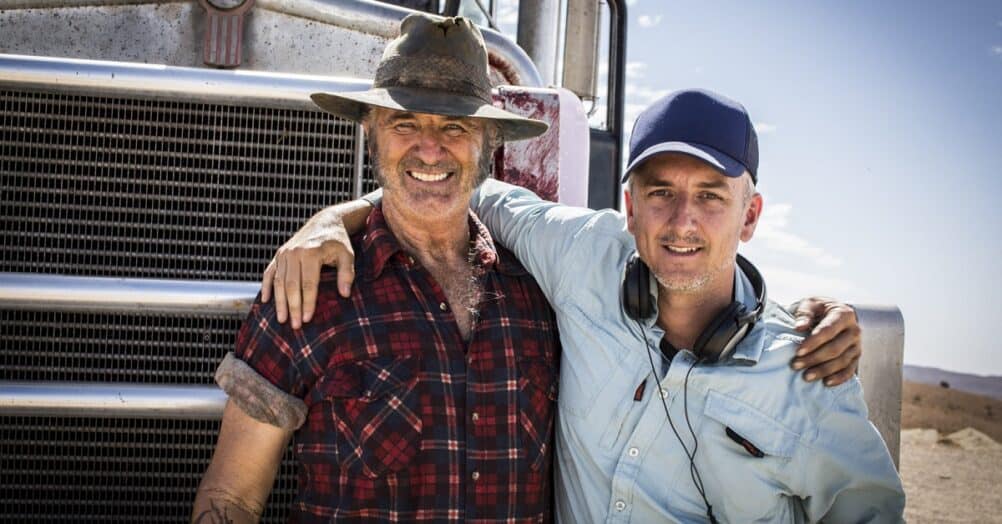Last Updated on July 28, 2021

SET VISIT: PART 4 OF 4
PART 1 –
PART 2 –
PART 3
INTERVIEW – STEWART HENDLER, DIRECTOR
The only problem with interviewing a young director – especially one who is experienced, confident and comfortable in his role – is that you kinda want to kill him. Just kidding. Mostly. It was actually a lot of fun chatting with Stewart Hendler because you definitely got the sense that WHISPER is in good hands. I think the guy is likely to deliver a really interesting genre effort.
So were you familiar with LOST before Josh [Holloway] was cast?
I was familiar with LOST. Not even with Josh before LOST, but after LOST came out everyone seemed to know his name. It was one of those born to be a star characters. He just pops off the screen.
And what is it that Josh brings to this movie?
Josh, even though he plays a bad guy on the show has a sort of built in relateability to him. There’s a likeability to him even when his character is conflicted. Maybe making the wrong choices. The audience go along with saying, “You know what, I see the humanity in that. I see myself in that.” And they want to go along on the ride with him.
That translates really well to our movie, because we’re making a movie about a convicted felon who’s kidnapping a kid, but doing it for the right reasons. He’s trying to get his life straight, and we needed that character to get them on his side with him.
When you first started did you have to extract pieces of Sawyer (Holloway’s character on LOST), and get rid of him?
Y’know, it was something I was wondering about, but Josh has put so much energy into making this his own character, a new character, a character that is different than Sawyer that it was almost effortless on my part. He came in and had fantastic ideas. We talked through the whole thing, and it seems like he’s brought the likeability, the energy that we love from LOST, but he’s made it completely different. It’s great.
How did the project come to you?
The script was brought to me. It was a script that I had read. I read lots of scripts. Obviously I come from commercials. And I was actually about to get started on another movie. The night before that became finalized I read this script, and thought oh my god, this is fantastic. The script was in different phases. It was going, it wasn’t going, and when it opened back up I jumped on it and I said I’ll do anything to make this movie. And I fought my heart out for it.
What has been your biggest challenge?
So far, easily our biggest challenge has been fighting the weather. Making a snow movie in June. Who’d a thunk it? It’s not as easy as we thought it would be. The movie’s start date got pushed back a couple of times. It was supposed to start in the late part of winter, early part of spring up in the Yukon. But the Yukon has had the warmest spring in 40 years. So all of the snow has been melting. All of the lakes there have become unsettled.
And it became this mad dash because we were working with Josh’s LOST availability. And LOST started running over because they became such a big deal show that their season finale expanded into this epic. So Josh was getting cut back on us, and the snow kind of crept forward. So what was all gonna be shot in the Yukon, ended up moving down to Vancouver. We shot like two days in the Yukon as opposed to fifteen. Brought everything back to Vancouver and decided to create our own snow.
Was the scene you’re shooting today originally supposed to be on a real lake?
This one actually wasn’t supposed to be for safety reasons and production logic. These couple of shots. We shot the majority of the sequence in the Yukon, but we’re getting just five shots here. Literally 30 or 40 seconds of screen time. But these are obviously very complex shots.
Can you talk about trying to make a subtle supernatural horror film that’s not too gory.
It’s interesting. I love films that scare you without having to resort to violence. At least onscreen gore. I think that can be far more effective and unsettling on a real visceral level. This movie is very much about this kid being incredibly clever and sly and evil and plotting. And pitting him against characters we think are relatively smart, and relatively clever too, and watching the real scares come out of the sort of psychological trickery and then of course leading to the bloodshed. It’s very much in sort of the execution of the plan that this movie gets scary.
Damon [Dash] mentioned to us that the meeting with you went extremely well because you captured a nice balance between the suspense and the horror. Can you give us an idea of how you felt going into that initial pitch and what your take on the script was?
I think I actually pitched it as A SIMPLE PLAN meets THE OMEN. A SIMPLE PLAN is a great movie about characters who are fundamentally good making terrible choices. And the audience watching as their bad decision after another leads to unbelievably dramatic and awful consequences. And just sort of biting your nails all the way through and going, “Please don’t do…Ahhh God you did that!” In a lot of ways this is the same thing.
When you replace the bag of money with David (the kidnapped little boy), he’s a catalyst for getting characters who otherwise may not have made these choices to do some very stupid things. To turn on each other. That’s what fascinated me going into it. Not the sort of off the shelf genre movie. Put a monster in a town and let it tear it up. It’s got a smart component to it. It’s about are humans fundamentally good or fundamentally bad. What is THE human nature?
Doing a film like this, given all the horror that’s come out in the last couple of years, what can you do to distinguish it?
Again that taps into my belief that audiences will be fascinated by anything that has great characters, and is smart. And I think this is a very smart movie, and we expect David to be one of the all time great evil kids. That’s a great lineage.
Not even evil kids, but kids with special powers. THE SIXTH SENSE, THE OMEN, THE SHINING. If we could touch that it would be fantastic, but there’s something that sort of captivates audiences about watching special children. And this does it in a very smart way.
On top of that we have an amazing cinematographer, Dean Cundy (HALLOWEEN). His movies are amazing. So he brings to this a sort of powerful visual sense. So it’s combining slick photography, some really interesting visual effects, great characters and a smart storyline.
Can you describe a particular scene you thought Dean really brought his A-game to and helped improve?
Where do we start? The whole darn movie. Um, this might be one of them. The ice sequence. All the stuff we shot in the Yukon, which was obviously incredibly challenging. Working in the freezing cold with a smaller unit. It was scheduled as our first two days of photography because we were waiting for Josh to get off LOST. The combination of the scenery up there, and this very dramatic scene that we’re staging with kids and wolves and ice. He really did some amazing stuff and brought a great energy to it.
Do you see David as a modern Damien? Can you talk about making that believable? And about 80% of it is set around the cabin. How did you handle that as a director?
In a way he is a modern day Damien. In THE OMEN, you get the child as devil, but you’re not sure if he’s aware he’s the devil. In THE OMEN II he sort of comes into his own. This is a young child who is very much aware of who he is and what he is, but is very good at playing the part of a sweet and innocent kid. So there’s a really interesting layer of manipulation that he’s putting forward.
So to answer believability, it was all about finding a kid who could pull this off. And we did a massive nationwide and Canada search, saw hundreds and hundreds of kids, and eventually narrowed it down to Woodruff.
This is Josh (Holloway)’s first major feature. Can you talk a bit about what he brings to the set and what he brings in front of the camera?
Josh is a great guy. It’s actually been very fun, and kind of an honor, being a part of his first feature. Josh is very much on the way up and he’s one of the most grounded human beings that I’ve ever worked with. Just salt of the earth – wonderful human being. He’s grateful to be here, and he brings as much energy, preparation and teamwork as we could possibly want.
Do you think you’ve benefited from him coming direct from television?
In that we have a very ambitious movie to make on a smaller movie style schedule. Absolutely. He comes from a world where they shoot a ton of set ups a day, and he’s got the energy to do that.
Can you talk about how David turns these characters against one another?
His technique, David’s technique, is all about taking people’s aspirations, sort of finding people’s weaknesses and exploiting it to make them make the wrong choices. So each of our characters has an ambition that has a sort of question mark in their head as to whether they…for example Roxanne.
Josh/Max’s girlfriend is on the threshold between being a girl and becoming a woman. And she’s come from a sort of sordid past, and she’s trying to start a new life and trying to become a mother. And this is all about her wondering if she has the resources, has what it takes, to take that step.
David in this movie plays to that idea, and seduces her by allowing her to explore whether or not she’d be a good mother and using it against her. So for each character he picks a weakness, picks an aspiration and turns that against them.
So he’s very believable as a villain? He works psychologically?
Yeah, pushing everyone’s buttons. He’s very effective at it.
Can you talk about how the whispering effect will be done as far as sound design?
It’s something we’ve been developing ever since we started prepping this movie. Because the whispering is literally a character, an extension of David, it’s designed to be something you don’t necessarily know is unusual. So it feels like it’s integrated into the environment it will contain elements of wind, of stuff that you’re seeing on screen, of cars starting. Eventually as the movie goes on it takes those elements and combines with a more organic whispering, a human whispering. The whispering evolves throughout the movie.
So what is David’s ultimate goal in this movie?
He’s challenging these characters…trying to push them to the point where they want to actually hurt him. Basically challenging Max to see if he has it in him to kill him. That’s a part of our climactic ending.
Do you want to set David up as a franchise villain or is this a stand-alone movie?
Certainly the movie is written with the potential to go farther. I’m not thinking that way at all. Right now it’s about concentrating on making one great film, but if it goes that way – fantastic. Other people think about that a lot more than I do.
And then we were done. I’d like to particularly thank Stewart Hendler for using his lunch break to talk to us. It was his one break for the day, but he didn’t hesitate to pop over and spend it on the promised interview. A lot of folks would have just blown us off (though it wouldn’t be explained that way by the publicists, of course).
















Follow the JOBLO MOVIE NETWORK
Follow us on YOUTUBE
Follow ARROW IN THE HEAD
Follow AITH on YOUTUBE